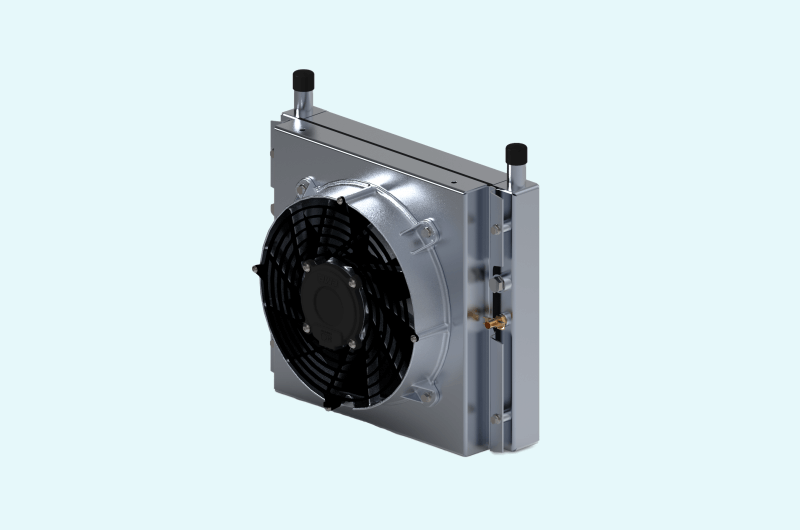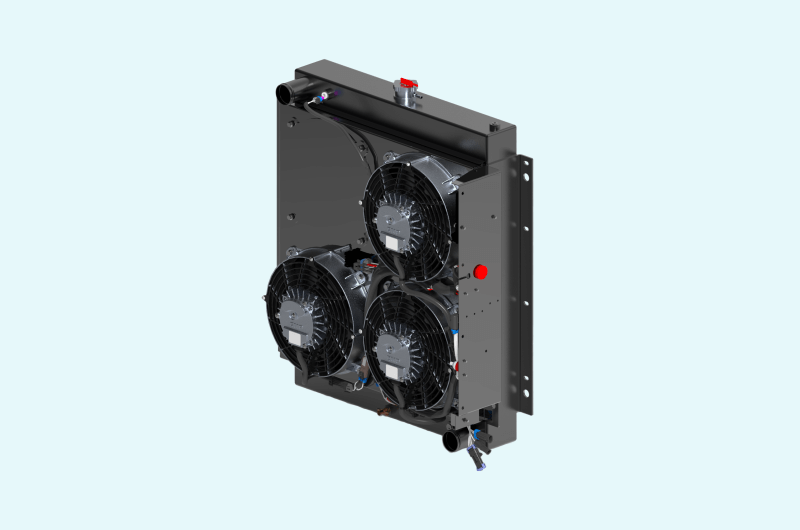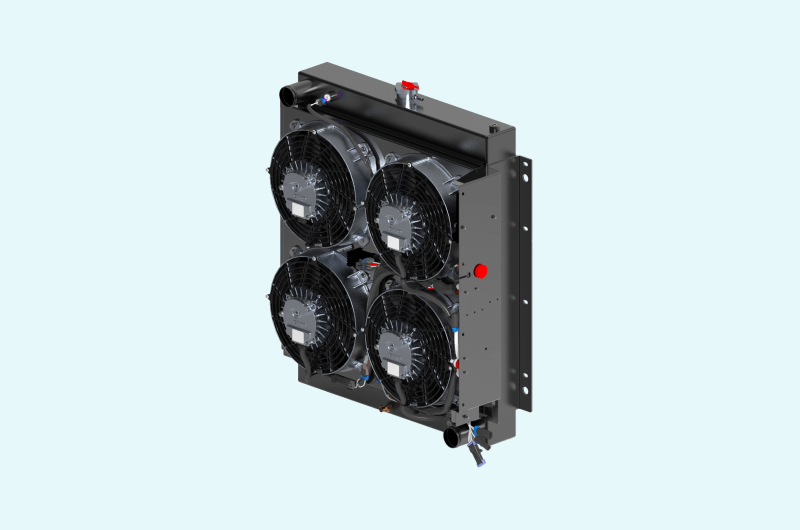Thermal Systems for Commercial Vehicles
Thermal Management for Electric Vehicles
We design reliable thermal systems for next generation of BEV and FCEV applications that deliver just the right amount of heating or cooling power using the least amount of energy possible. Our engineers look at the whole system including waste heat recovery and storage.
Technical services thermal systems or fan kits are supplied as a complete module which can be installed by the OEM. A typical kit will consist of fans, heat exchangers, pumps, cables, hoses, expansion tanks, heaters and valves for the ultimate easy install. Each thermal system is pretested and in the case of active cooling systems, pre-filled, before being dispatched.
Why is the thermal management system important for electric vehicles?
Good cooling system architecture almost always enables efficiency gains. The key is then translating these efficiency gains into savings on the vehicle’s running costs and reduced production costs. This is why thermal systems are the preferred choice for production vehicles.
Explore our range of thermal systems or contact us to discuss your requirements.

THERMAL SYSTEMS
EMP TK1 Thermal System
The EMP TK1 Thermal System is a compact, single-fan thermal system that provides up to 90,000 Btu/h of heat rejection and is an ideal solution for trucks and machines that overheat due to harsh duty cycles and operation in hot climates.

THERMAL SYSTEMS
EMP TK3 Thermal System
EMP’s TK3 is a three-fan system capable of rejecting up to 200,000 Btu/hr. Each system is ideal as a primary cooling unit for various types of equipment, or as a supplemental cooler on larger vehicles to eliminate overheating issues and improve vehicle performance and efficiency.

THERMAL SYSTEMS
EMP TK4 Thermal System
EMP’s TK4 is a four-fan system capable of rejecting up to 290,000 Btu/h. Each system is ideal as a primary cooling unit for various types of small equipment, or as a supplemental cooler on larger vehicles to eliminate overheating issues and improve vehicle performance and fuel efficiency.

